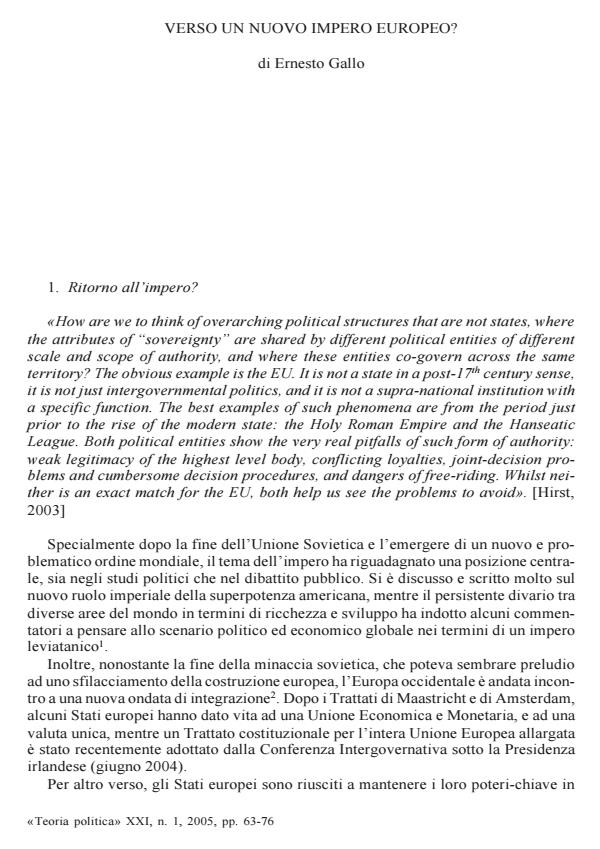Verso un nuovo impero europeo?
Journal title TEORIA POLITICA
Author/s Ernesto Gallo
Publishing Year 2005 Issue 2005/1
Language Italian Pages 14 P. File size 45 KB
DOI
DOI is like a bar code for intellectual property: to have more infomation
click here
Below, you can see the article first page
If you want to buy this article in PDF format, you can do it, following the instructions to buy download credits

FrancoAngeli is member of Publishers International Linking Association, Inc (PILA), a not-for-profit association which run the CrossRef service enabling links to and from online scholarly content.
Some scholars have been recently arguing that current European political system shows some features which were typical of the Middle Ages. The European Union, neither a state nor a federation nor a confederation, shares with its imperial ancestor, the Holy Roman Empire, several traits: both live together with decentralized authorities, show weak institutional structures, overlapping levels of power, and face difficulties when playing outside their blurred borders, to mention only few aspects. Shall we conclude that the Union is a kind of post-national empire, although embedded in a democratic political culture? Differences are greater than supposed. While medieval emperors ruled together with a kind of international of noblemen, the EU is striving to develop a supranational, democratic community. Moreover, the Union has contributed to the convergence between democratic and non-democratic countries, and enhanced the economic level of its poorest regions. Differences with material damages brought about by medieval and Habsburg imperial policies and wars are striking. The article argues that the EU is no democratic empire: on the one hand, this category constitutes a kind of logical contradiction; on the other, the weaknesses of the democratic structure of the Union can be understood in the framework of a process which shows the emergence of the first supranational community of states and citizens in history: a community, as in the wording of the «founding fathers», not an empire.
Ernesto Gallo, Verso un nuovo impero europeo? in "TEORIA POLITICA" 1/2005, pp , DOI: